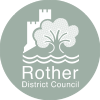The main provision is section 161 of the Highways Act 1980 which provides as follows:
161 – Penalties for causing certain kinds of danger or annoyance
- If a person, without lawful authority or excuse, deposits any thing whatsoever on a highway in consequence of which a user of the highway is injured or endangered, that person is guilty of an offence and liable to a fine not exceeding level 3 on the standard scale.
- If a person without lawful authority or excuse;
- lights any fire on or over a highway which consists of or comprises a carriageway; or
- discharges any firearm or firework within 50 feet of the centre of such a highway, and in consequence a user of the highway is injured, interrupted or endangered, that person is guilty of an offence and liable to a fine not exceeding level 3 on the standard scale.
- If a person plays at football or any other game on a highway to the annoyance of a user of the highway he is guilty of an offence and liable to a fine not exceeding level 1 on the standard scale.
- If a person, without lawful authority or excuse, allows any filth, dirt, lime or other offensive matter or thing to run or flow on to a highway from any adjoining premises, he is guilty of an offence and liable to a fine not exceeding level 1 on the standard scale.
[Highways Act 1980, s 161 as amended by the Criminal Justice Act 1982, ss 35, 38 and 46 and the Highways (Amendment) Act 1986, s 1.]
The main point to make in relation to this provision is that it is intended to prevent annoyance to users of the highway (such as pedestrians on the pavement or motorists on the road) although complaints are usually received from householders concerned about noise and disturbance and possible damage to their property. Unless such persons are inconvenienced in their capacity as a highway user, the legislation does not offer them any remedy.
In Rother the above general legislation has been amplified in relation to land adjoining a street by a bylaw which provides as follows:
DANGEROUS GAMES NEAR STREETS
- No person shall on any land adjoining a street play any game in a manner likely to cause obstruction to any traffic or to cause danger to any person in such a street
Again, however, the thrust of the bylaw is towards protection of persons using the street, rather than adjoining householders.
All the above legislation is enforceable by the Police, to whom any complaint should be made. As the Council does not have powers of arrest, its own officers would be unable to intervene. Typically, many offenders will be below the age of criminal responsibility, so that in practice even the police will have difficulty in taking action.
Where major disturbance is being caused by specific individuals, an Anti -Social Behaviour Order may be appropriate. The basic principles to be kept in mind when considering the use of these orders are:
- The order making process itself is a civil one akin to that for an injunction. The order is aimed at deterring anti-social behaviour and preventing escalation of the behaviour, without recourse to criminal sanctions. Breach of the order, however, is a criminal offence. The process is not suitable for private disputes between neighbours (which are usually civil matters), but is intended to deal with criminal or sub-criminal activity which, for one reason or another, cannot be proven to the criminal standard, or where criminal proceedings are not appropriate. The orders are not intended to replace existing criminal offences, for example in the Public Order Act 1986, but there may be circumstances where they provide alternative means to deal with such behaviour.
- Police and local authorities should take great care, when investigating complaints, to avoid the possibility of discrimination/victimisation on the grounds of race, sex, sexual orientation, religion, disability or creed. The orders should not be used against someone just because he or she is different, or is engaging in activities different from his or her neighbours for example because of difference in race or religion, unless they are engaging in criminal or sub-criminal behaviour of the type set out above. Indeed the orders should be used to protect individuals or families who are from minority groups and who are the targets of anti-social behaviour.
- Some of those against whom an order is being considered may have other social or health problems, including drug and/or alcohol misuse, and/or mental health problems. These problems should be borne in mind – and in the case of mental health problems, may be addressed by referral to social care intervention. But these considerations should not override an application for an order where in the opinion of the relevant authority it is otherwise justified. It should always be remembered that the purpose of the order is to restrain serious anti social behaviour caused to other individuals, who cannot be expected to tolerate the behaviour unchecked.
- The orders should normally be sought when other methods of dealing with the behaviour that do not involve court proceedings, such as mediation, have failed or have been considered inappropriate.
- The imposition of an anti social behaviour order is a serious matter and breach of any prohibition contained in one gives rise to criminal proceedings and penalties. Every effort needs to be made to ensure the defendant understands this, and that he or she attends the hearing of the civil application and is given the opportunity to state his or her case. The Legal Aid Board is introducing a fast track for Assistance by Way of Representation (ABWOR) before April 1999.
- Partnership between the police and local authorities is crucial for the use of these orders, both at the strategic level and in their use in the community.

